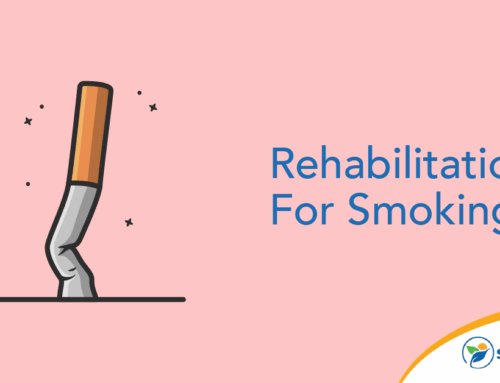If you’re thinking about seeking therapy, your mind is probably full of questions. You might wonder how the process works, what’s involved in it and how long therapy lasts. When is it time to seek help and will it seriously disrupt your life? How will you know when you’re getting better? This guide answers some of those questions, so keep reading to learn more about what you can expect and how therapy is likely to work for you.
When Is It Time to Find a Therapist?
A lot of people wonder when they should seek professional help for their mood, mental health or addiction issues. There is no standard answer for this, since everyone is different, but, in general, you should seek the professional help that therapy provides when you feel like you’re struggling to manage your mental or emotional health issues on your own. When a mental health problem or behavioral issue, including addiction, is interfering with your overall quality of life, it may be time to get help. The majority of people benefit from therapy; 60-95% of the people who participate in it show improvement.
When looking for a therapist, it’s important to find a care team that feels right for you. Many people ask their primary care provider for a referral for mental health services, but there are other options as well. Social workers, nurses, peer groups and even school teachers for juveniles might have recommendations for therapists. You can also look up mental health professionals in your area, perhaps through your health insurance provider, and interview a few to get a feel for their style. If you don’t feel comfortable with the practitioner you speak to first, don’t be shy about meeting with someone else. Successful therapy has to work for you, and it might take time to find the right therapist for you.
How Much Time Does Seeing a Therapist Take?
If you’re wondering how long does therapy take, there are two answers, and both of them are: it depends. First, there’s the length of time you need to attend each session. The standard here is approximately between 45 and 60 minutes, usually about once a week. This is not a rigid standard, however, and you should discuss scheduling with your provider to understand the level of care you need. Your therapist might recommend longer or more frequent sessions, especially at the beginning of your therapeutic relationship, and you may gradually taper off to a less intense schedule as you master strategies to manage the issues that led you to therapy.
The second answer responds to the question, “How long does the average person stay in therapy?” Again, it varies. The length of time therapy takes depends on your goals and the nature of the obstacles you’re dealing with. For some people, therapy could resolve a very specific issue related to a particular situation quickly. However, many people see significant improvement in their condition after a few months, but continue to meet with their therapist for years because of the support they provide in dealing with stressors that contribute to mental turmoil. As usual in mental health care, the right answer varies based on your personal needs.
How Long Does Therapy Last?
Of course, you can stop attending therapy when you feel your mental health has improved, but you may wonder how you can know when that is. When it comes to how long trauma therapy takes to work, is there a fixed time period? What about how long therapy takes to resolve other issues, such as addiction or depression? There is so much variation in how well people respond to different treatment approaches that the answer could be anything from a brief series of sessions to a lifelong commitment to ongoing support.
Generally, initial therapy is likely to be more intensive than later stages. Depending on the mental health crisis you’re experiencing, during the first 30 to 90 days or so, you may need daily or weekly sessions — perhaps in an inpatient setting — until your crisis has subsided. After that, you might move into a halfway house or sober living arrangement with group sessions and weekly contact with your provider. Eventually, at least for addiction services, the goal is to move back into something like your normal life with ongoing weekly group meetings and a 12-step sponsor who can provide immediate peer support when you need it.
How to Measure Whether You’re Getting Better
Your measure for whether you’re making progress is partly internal and partly external. In the late stages of therapy, when your emotions and mental habits are more stable than they might have been before, you can probably judge for yourself how well you’re doing. If you feel well-balanced and you haven’t recently relapsed, either into a mental health crisis or a loss of sobriety, these are positive signs you are recovering.
Be careful about self-assessments, however. At the heart of addiction for many people is a basic inability to judge boundaries or where healthy behavior lies. Especially early on in your treatment, you should rely on your therapist, your sponsor and the group to help you know how much progress you’re making. Don’t try to rush the process, since everybody moves at their own pace. Seek feedback from your sponsor about whether you’re ready to move to the next step, whether your sobriety will be hurt by a major life change or whether it seems like you are getting all the help you really need.
When Should You Expect to See Results?
Results from therapy to resolve mental health and addiction issues come gradually with dedication. There’s no fast track to perfect mental health. If you arrived at therapy in a state of crisis, such as during a psychotic bout or in a state of withdrawal from substances, you’re probably going to notice a change during the first few days, as you sober up or as the prescribed medications take effect. This is not the end of your road, however, but more like the beginning.
If you are dealing with a mental health or addiction issue, and you’re wondering whether you can manage it alone, now is the time to seek help. If you’re concerned about how long therapy lasts, contact one of Sunlight Recovery’s compassionate intake counselors at any time to get the answers you need to start the road to recovery today.







